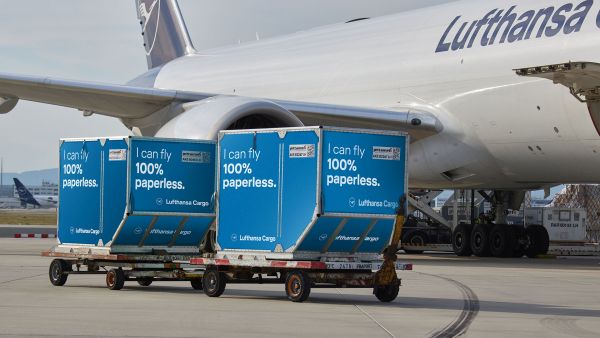Lufthansa Cargo says it will only use electronic air waybills from 27 March, with the few remaining paper AWBs digitized on acceptance.
Electronic AWBs will be mandatory on feasible lanes – those for which the regulatory basis for eAWBs is in place – for all forwarding companies. If local regulations require a paper AWB, Lufthansa Cargo will re-produce the AWB and it will accompany the shipment on the flight.
Chief commercial officer Ashwin Bhat says that most of the carrier’s customers already use eAWBs exclusively, adding: “With the new service, we can now easily take all customers with us on our digitization journey and enable them to take the step towards paperless transport as well.”
In 2020, IATA announced an industry goal to achieve 100% eAWB by the end of 2022.
Vice president global fulfillment management at Lufthansa Cargo, Dr Jan-Wilhelm Breithaupt, added: “We have implemented the eAWB process as an industry standard of IATA continuously and worldwide at Lufthansa Cargo since 2014. A five-year data quality initiative that de-cluttered the data interface between customers and Lufthansa Cargo was, among other things, an important cornerstone that enabled sustainable eAWB penetration and consistent top positions in global rankings.”







